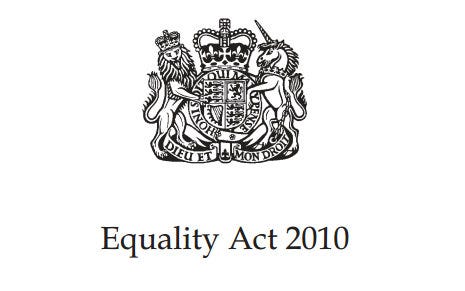British Conservatives to Amend the Equality Act
The Tories claim they will amend the Equality Act
More than a decade has passed since the last Labour government passed the Equality Act. In that time society has changed a lot, with greater numbers of people identifying as a gender that is different from their biological sex. The Act has not kept pace with evolving interpretations and is not sufficiently clear on when it means sex and when it means gender. This ambiguity has left single-sex service providers vulnerable to challenge and legal action, ultimately putting women and girls’ safety at risk. - UK Conservative Party Press Release
The UK Equality Act, introduced in 2010, was enacted by the Labour Party to prevent discrimination based on various characteristics, including gender, race, disability, and sexual orientation. But concerns have arisen about how the Act discriminates against individuals based on their "proper" biological sex, particularly regarding male and female spaces and services.
The Equality Act does not clearly define "sex" or "gender," leading to stupendous ambiguities. The Act covers both "gender reassignment" and "sex" as protected characteristics, but it does not address the rights and protections of individuals based on their actual - biological - sex. This lack of clarity has led to disputes, especially regarding access to single-sex spaces like bathrooms, changing rooms, and shelters.
The Tories claim that if they are re-elected they will amend the Equality Act in order to make clear that the protected characteristic of sex is ‘biological sex’. This change aims to make it simpler for service providers for women and girls to prevent biological males from taking part – such as those running sessions for domestic abuse victims. - The Spectator
One of the main areas of contention is the provision of single-sex spaces. The Act allows for exceptions where it is "a proportionate means of achieving a legitimate aim" to restrict access to these spaces based on sex. The interpretation of what constitutes a legitimate aim is subjective and has led to inconsistent applications. For example, allowing transgender women (who are biologically male) into women-only spaces violates the privacy and safety of biological women. This dilutes the original purpose of the Act, which was intended to protect women from male violence and provide a safe environment. On its face, the argument seems devoid of logic and common sense. Passing a law to protect women without clarifying what an actual woman is in the law is bad policy, to say the least.
The proposed changes to the Equality Act to define sex as "biological sex" have reignited these debates. Proponents argue that this change is necessary to protect the rights of biological women in single-sex spaces, sports, and other areas where physical differences between the sexes are relevant. Even the Equality and Human Rights Commission (EHRC) has suggested that a better definition would bring greater clarity and simplicity.
It is clear that the lack of a clear definition of biological sex in the Equality Act leads to discrimination against women. For example, in sports, allowing transgender women to compete in women's categories is unfair to female competitors due to inherent physical advantages. In women's shelters, allowing biological males in women’s spaces defeats the purpose of having safe spaces for survivors of domestic violence. The truth of the matter is hard to deny.
Beyond single-sex spaces, the broader implications of the Act's current stance include impacts on women's health services, employment, and educational opportunities. For instance, the inclusion of transgender women in women-only shortlists or quotas in employment may dilute efforts to address historical disadvantages faced by biological women. In health services, biological differences are critically important for proper diagnosis and treatment, and conflating gender identity with biological sex will lead to misdiagnosis or inappropriate care.
While the UK Equality Act was established to combat discrimination and promote equality, its failure to clearly define biological sex versus gender identity has led to disaster. Without defined parameters, the Act risks undermining the very protections the act aims to provide for women and girls. The Equality Act has turned out to be very bad policy, and bad policy must always be fix, and replaced with common-sense laws and regulations.
-Atlantic Playbook



